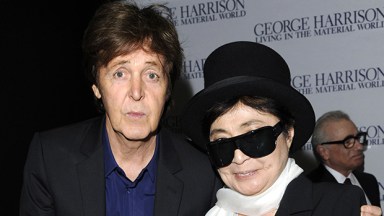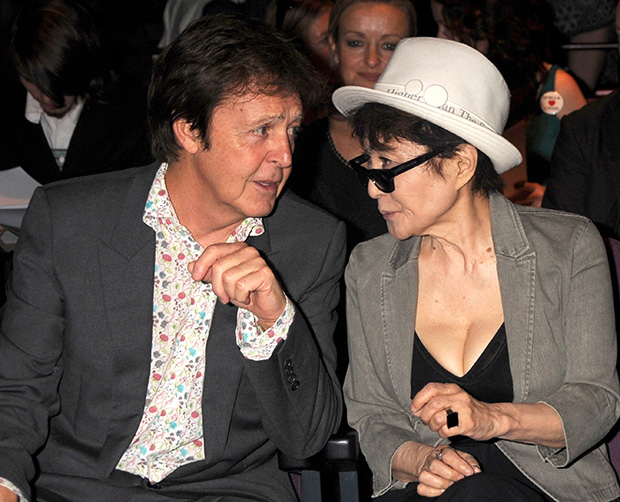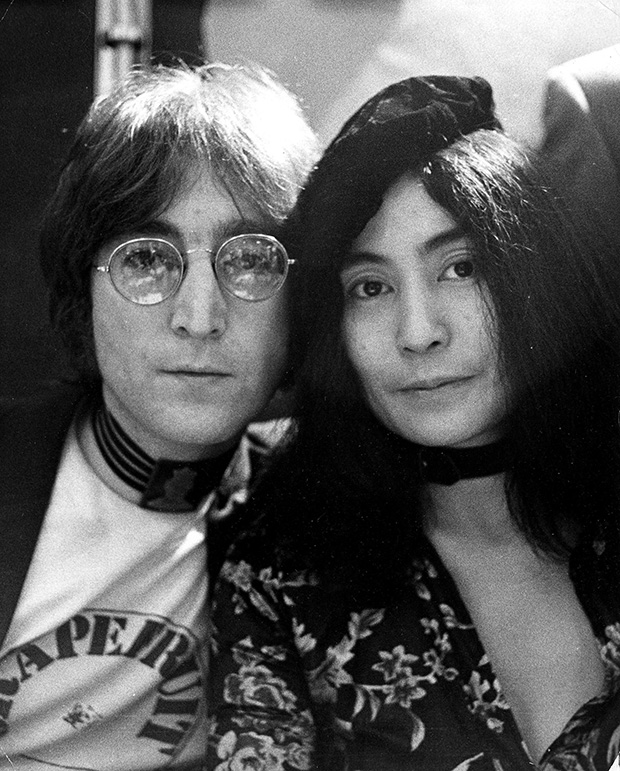
Paul McCartney, 81, talked openly about his late bandmate John Lennon‘s widow, Yoko Ono, 90, attending Beatles recording sessions in the 1960s, and called it an “interference,” in a new episode of his podcast, McCartney: A Life in Lyrics. The singer said the doting husband, who was murdered at the age of 40 in 1980, invited his wife to the studio at a time when the band was “heading toward” a breakup and recording 1968’s The White Album.
“John and Yoko had got together and that was bound to have an effect on the dynamics of the group,” Paul shared with poet Paul Muldoon, in the episode.

“Things like Yoko being literally in the middle of the recording session [were] something you had to deal with,” he later added. “The idea was that if John wanted this to happen, then it should happen. There’s no reason why not.”
Muldoon went on to mention how the band was supposed to be working when recording, and Paul replied, “Anything that disturbs us, is disturbing,” before going into more details about how Yoko’s presence made him and his bandmates, which also included the late George Harrison and Ringo Starr, feel.

“We would allow this and not make a fuss,” he said. “And yet at the same time, I don’t think any of us particularly liked it. It was an interference in the workplace. We had a way we worked. The four of us worked with George Martin. And that was basically it. And we’d always done it like that. So not being very confrontational, I think we just bottled it up and just got on with it.”
“It was the idea of the Beatles, it was also just this straight, practical thing of ‘This was our job.’ This is what we did in life,” he continued. “We were the Beatles. That meant if we didn’t tour, we recorded. And that meant if we recorded, we wrote.”